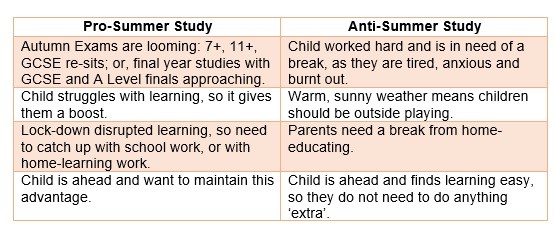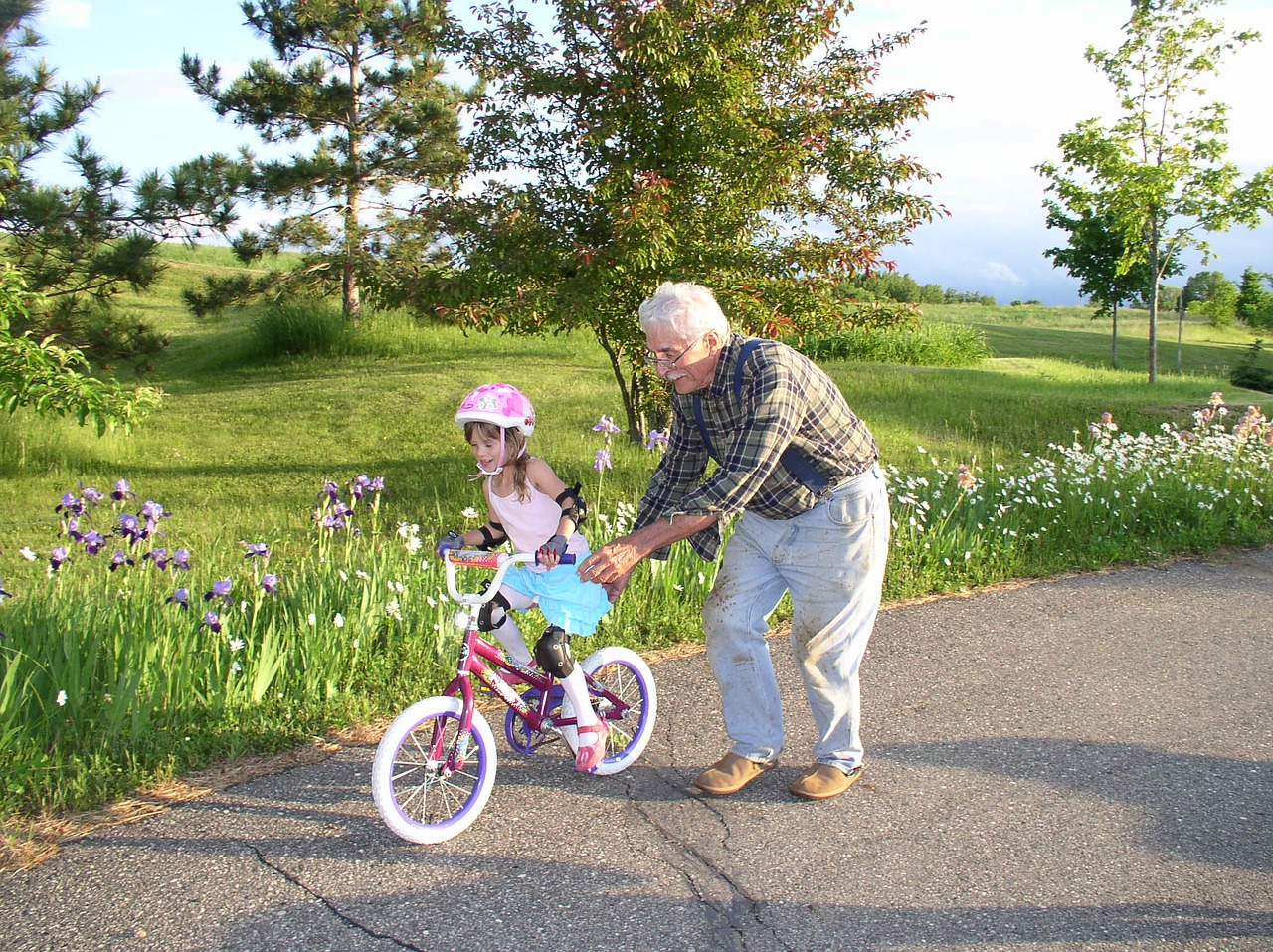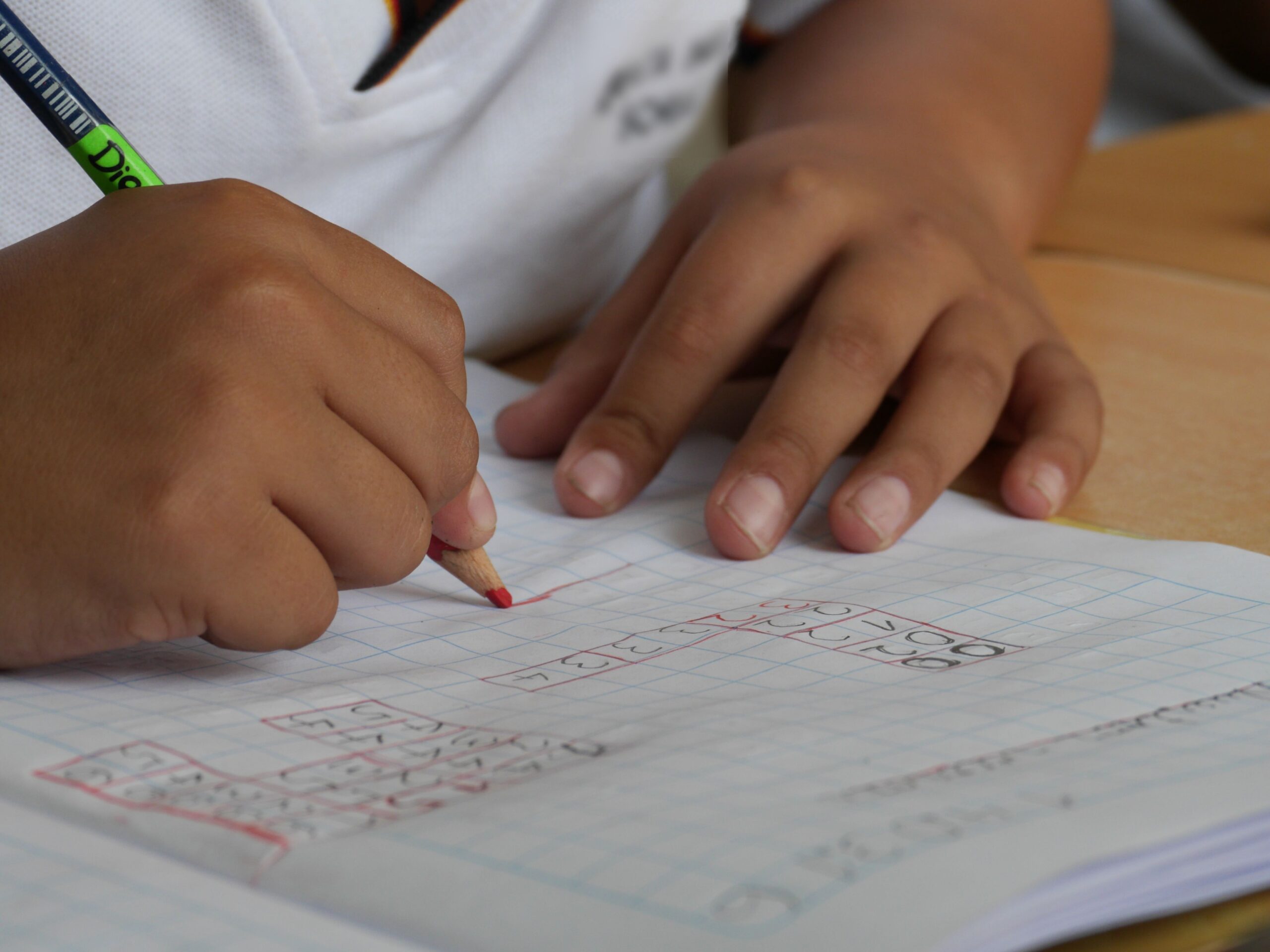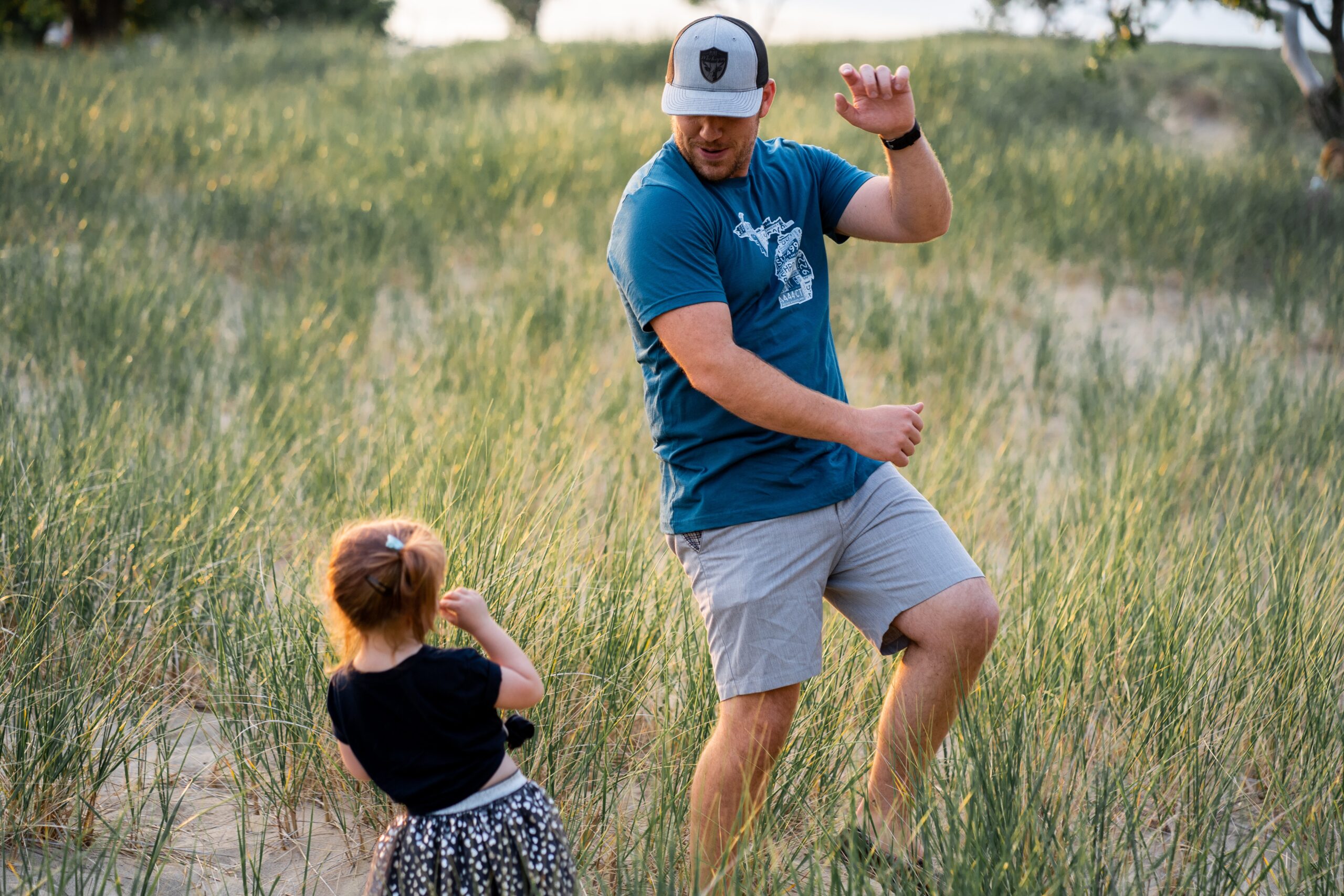In this blog and vlog, we are going to explore the following:
1. Reasons for and against summer study;
2. What research says about summer schooling;
3. Encourage a growth mindset.
Are you debating about what to do over the summer holidays with your children? Perhaps you have enrolled your child in a ‘Summer Study Program’, but are now regretting your decision. Or, maybe you have decided a ‘Free-For-All’, allowing your child to do whatever they want (even nothing!)

When it comes to studying over the summer, we seemed to have a developed a culture of polarised opinion: it is all or nothing.

Some children will not be receiving any break, as they continue their studies in a tuition centre. Or, they are encouraged to study six hours at home, like they would at school, five days a-week, so there is no holiday. Exhaustion, anxiety and careless mistakes soon sets. Resentment begins to build, leading to melt-downs, moaning and malicious war-of-words.
Other children are left doing nothing! Aimlessly, wondering around the house, grazing out of boredom, some children will be secretly glad when the summer holidays are over. Some children will have their eyes glued to screens: phones, iPads, TVs, computer games – anything electronic. Lethargy, frustration and forgetfulness sets in, leading to melt-down, moaning and malicious war-of-words.
How can we avoid over-working or under-working our children during the summer?
1. Reasons for and against summer study.

What’s interesting is how similar both lists are. Can you see what the fundamental similarity is?
Both come from a place of fear.
Fear that my child has studied too much, or too little; fear that my child is behind, or fear that my child will not have fun; fear that my child will fall behind, or fear that my child will be bored as they are ahead.
Parents, whatever side of the fence you are on, are united by the fact that you want what is best for your child. It is not that parents wanting their child to study over summer do not value play and fun. And it is not that parents wanting their child to relax and not study over summer do not value learning and studying. Parents on both sides want their child to be happy, well-adjusted and to thrive in their learning.
So, before we can look at what we could be doing over the summer, what does the research show?
2. What research says about summer study.
We have over a century’s worth of research on this hotly debated subject of summer studying. From White, 1906 to recent studies by Shinwell and Defeyter 2017, the results are resounding conclusive. The long summer holidays does cause children to forget what they have learnt. Children perform worse at the start of the Autumn term in Standardised tests than they did at the start of the summer.
Why is this?
Well, it is as the old adage states: “If you do not use it, you lose it.” Knowledge taught in term-time will be lost if students do not practice it.
Yet, you have probably heard that once you learnt how to ride a bike, you never forget. You may indeed have experienced this yourself. You’ve not ridden a bike for a few years, but then are on holiday and rent a bike. Perhaps to your surprise, you’re not only riding it, you’re zipping around on it like when you were a child! Then, why is it that our children forget over summer?
This is because we have two types of memory: declarative and procedural memory.

Declarative memory: This is conscious memory. It is memory that you know you know. You can actively draw upon it. There are two types of declarative memory: episodic memory and semantic memory.
- Episodic memory relates to our experiences. It can be considered the ‘episodes’ of our lives, as it is memories relating to events we have experienced.
- Semantic memory relates to our knowledge. For example, capitals of cities, dates in history, meaning of words, to name a few.
Procedural memory: This is considered unconscious memory. It’s things we know that we do not have to actively think about. An example is riding a bike. You may have learnt to ride a bike at 5 years old. As an adult, you are still able to do it, without thinking about it. Or, you may have had the experience of driving to work and think, ‘How did I get here?’ This is your procedural memory! You do not have to think about it to do it. With the example of driving, you do not have to consciously consider the pressure on the pedals or follow the signs actively to reach your destination – you are in autopilot.

What does this mean for our children’s learning?
It means that unless children use their semantic memory, the chances are they will not retain what they have learnt throughout the year. This is called the ‘Summer Slide’. It is not a slide you want your child to go down! It is the loss of knowledge over the summer.
3. Encourage a growth mindset.
For most people, when they think of ‘Summer Study’ it conjures up rows of desks, a chalk board and mountains of books. Children sit quietly listening to an instructor – though it is most likely to be hunched over a laptop – making notes. Or, children are at home in their bedroom at their desk silently studying.


However, this ignores one crucial point – ‘Summer Study’ does not mean replicate a school environment. If you home educate, you most probably have a routine or structure, and ‘Summer Study’ does not mean sticking to this either. ‘Summer Study’ means nurturing your child’s curiosity; allowing them opportunities to learn about topics that they might not otherwise be able to, whilst still practising crucial concepts that they have learned.
How do you do this?
I’ll start of by saying what it is not doing. It is not dressing up one activity as something they’ll enjoy whilst ‘really’ doing something else. For example, if your child likes dinosaurs, it is not about printing a Math worksheet with pictures of dinosaurs and working through it (I am not undermining this – it can be useful to do, but not for what I am talking about here).
It is about promoting a growth mindset. A growth mindset is knowing that your abilities can be developed. A fixed mindset is the belief that abilities cannot be developed.
How does this relate to ‘Summer Study’?
We can promote a growth mindset by allowing our children to practise their knowledge in real-life settings, thus allowing them to move past their limited beliefs. For example, if your child feels they are ‘bad’ at reading and they dislike Comprehension tasks, then getting them to do more of this over the summer will most likely lead to more of the same. However, if you encourage them to attend a book club, they will most likely move away from their fixed-beliefs, as they have more opportunities to discuss books with a wider range of people. If you cannot join a book club, start one at home. You can do it as a family. Each family member takes it turns in choosing a book to discuss. You can even hold family and friends book club meetings online. Not only does it serve to help with their literacy learning, it helps to nurture a genuine pleasure in reading, as the discussions are dynamic, alive and rich. People can talk about how moments from the story impacted them; how words made them feel, and what they wanted to happen.


For Maths, you may find it more challenging to integrate this into your daily or weekly lives. Therefore, you might need to actively re-visit concepts. Even so, it does not have to be endless drills daily. Indeed, research from Cepeda et al, 2008 found that adults could retain concepts if it was revisited every 11 days. Thus, you could revise a Math concept every 3 – 5 days to ensure your child recalls the information. To promote a growth mindset, do not praise your child on the basis of how many questions they answered correctly, but rather praise their efforts. By doing this, they will see the value in trying and become aware that just because they cannot do something immediately, does not mean they cannot in the future if they practise!
Encourage your child to take up something novel. If your child has not done dance classes before, offer them the opportunity to take it up. Not only will this nurture in them the ability to get out of their comfort zone, they will have fun. You could also ask them to write a review of their experiences for the dance club, so that other people can try it. To help your child with their review, you could ask them to look at other reviews so they can get a better understanding of structure and language. If there is a particular style of dance they like, they can look it up and find jargon (specialised words within a field) to help be specific and detailed with their review. All of this, not only enhances their reading and writing skills, but also their researching skills. It thus reinforces concepts and content from what they have been learning at school or in home-learning.




Take trips to zoos, museums, aquariums and amusement parks. Family trips are excellent experiences for children of all ages. When looking around, rather than just going through it, get stuck in! Ask your child questions about what they are seeing and doing. Research from Jant et al, 2014, revealed that when parents asked open-ending questions, children were more inclined to remember facts about exhibits than if their parents had not.
What if your child has a learning difficulty?
If your child is a SEND learner, they may have struggled with particular concepts. It is then worthwhile spending a few hours a week going over these.
What if your child, however, is about to take an important exam, such as 7+, 11+, GCSEs, IGCSEs, or A-levels? The above are all still great tools to engage your child in the concepts that they will need to pass their exams for the 7+ and 11+. However, you may wish to add an hour or two a week to going over exam papers to ensure they are familiar with the test paper. You may also consider hiring a tutor; or, attending a group session to brush up on skills. Again, however, this should be an hour two a week, and not every day to replicate school; or, home-learning hours.
However, you may also want to consider more specialised clubs or groups. For example, if your child is doing their GCSEs, you may want to enrol them in workshops, talks and hands-on summer camps. They may need more structure to ensure they cover the breadth and depth of their studies. Even so, effective study methods will ensure they still get a break and fun.
Overall
‘Summer Study’ is fun! It is not building a classroom in your house; or, the continuation of home-learning schedules, it is giving your child opportunities to explore their world through the lens of discovery. Engage with them when on family outings, so they can get stuck in with the family activities. Allow them to try new classes or activities, so they push back the boundaries of their experiences, and broaden their horizons.
And, remember, if your child does have an exam; is a SEND learner; or, has found learning concepts challenging, then a few hours a week of tuition might serve them well. It should not be used as a way of jimmying more work or ‘school-style’ learning into your child’s holiday. Instead, it should come from a place of growth mindset. Their efforts should be praised, so they know the value comes from what they are doing, not the result. In doing this, they will be more inclined to try, as they know that if they try, they will succeed.
References
If you want to check out the research yourself, here are a list of works for you to enjoy:
Cepeda NJ, Vul E, Rohrer D, Wixted JT, and Pashler H. 2008, Spacing effects in learning: a temporal ridgeline of optimal retention, Psycholgy Science 19(11):1095-102.
Jant EA, Haden CA, Uttal DH, Babcock E. 2014. Conversation and Object Manipulation Influence Children’s Learning in a Museum, Child Development. 85(5):2029-45.
Shinwell J and Defeyter MA. 2017, Investigation of Summer Learning Loss in the UK-Implications for Holiday Club Provision, Front Public Health. 5:270.
White, William F. (1906). Reviews before and after vacation, American Education, 185-188.
